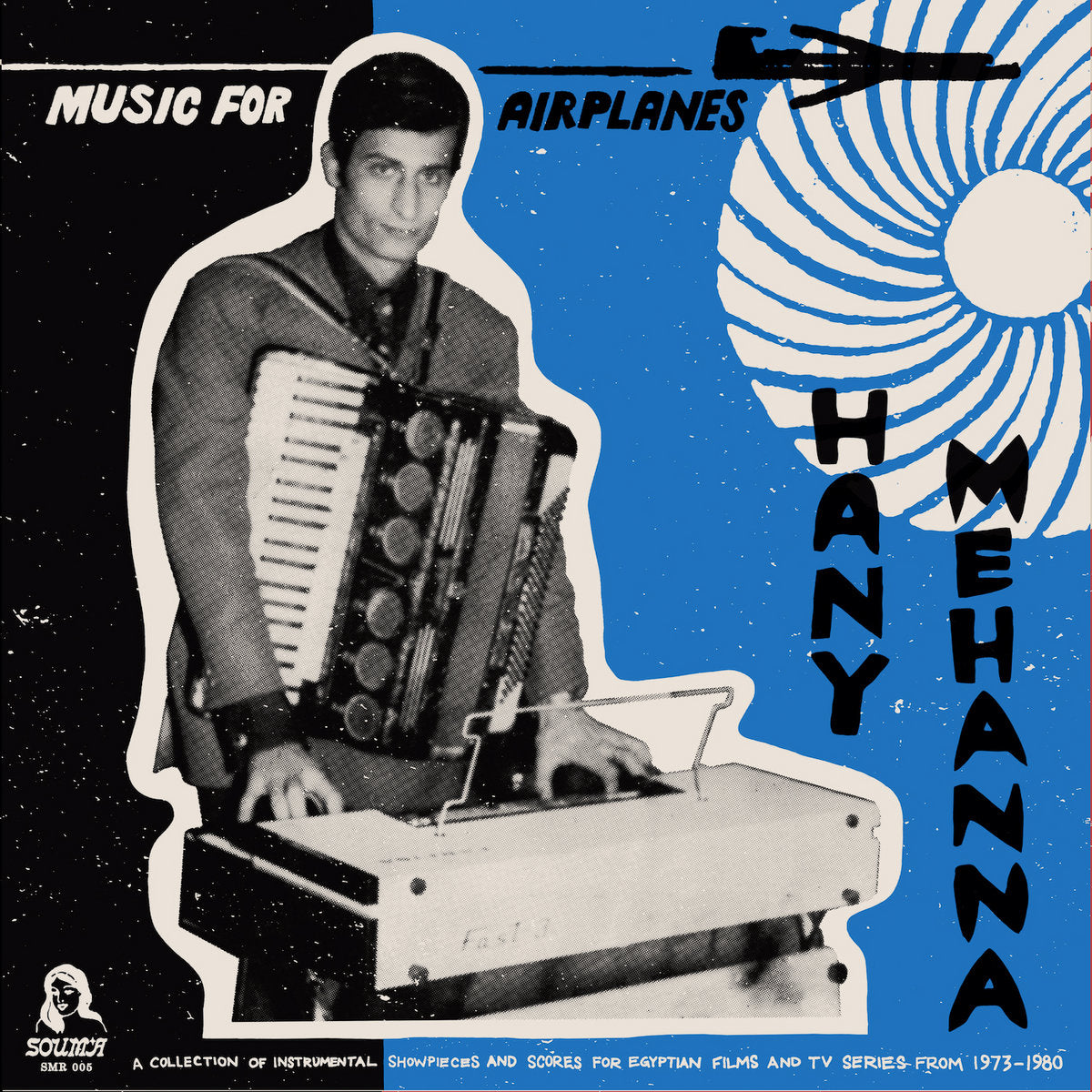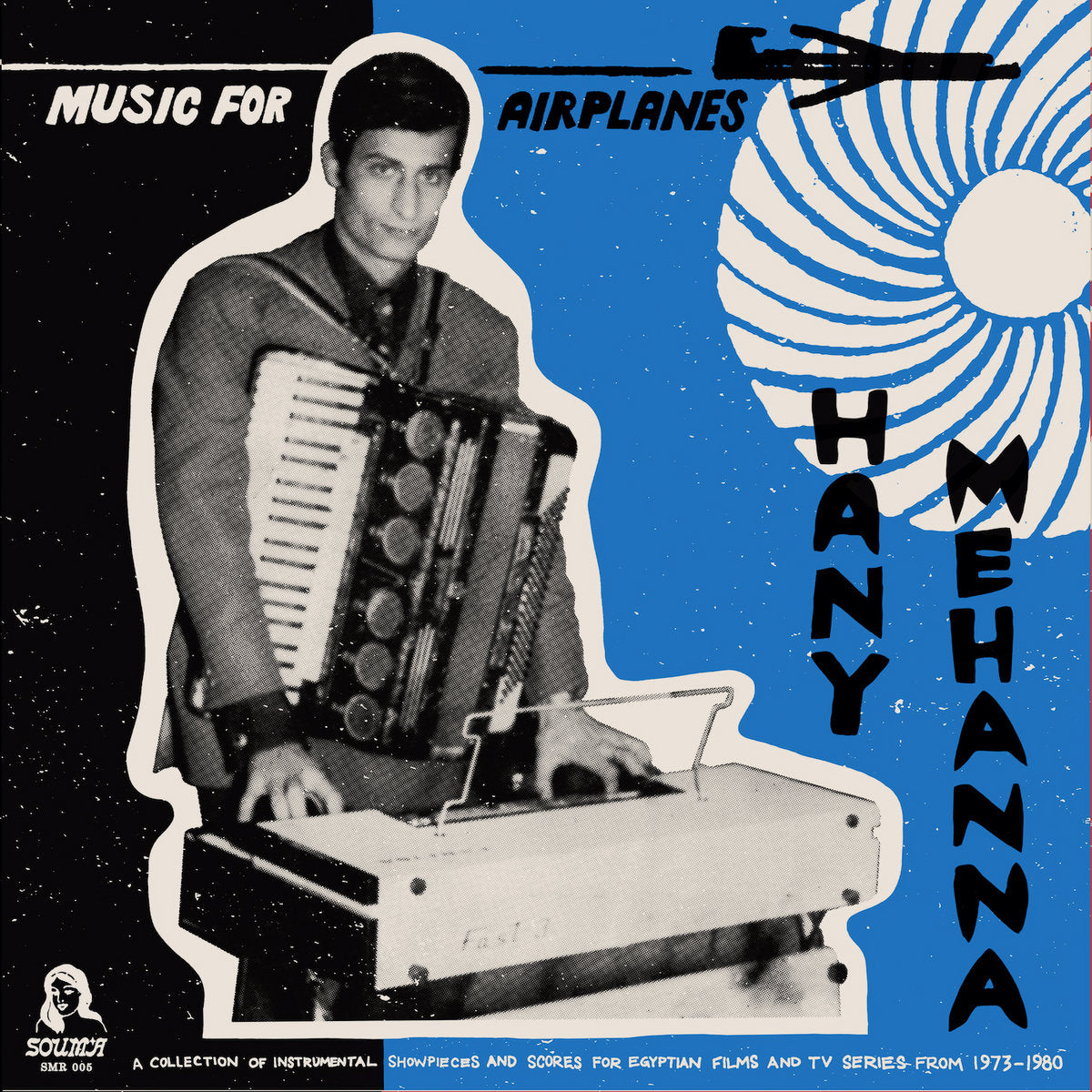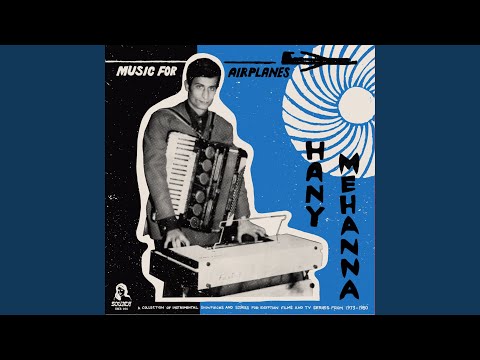A collection of instrumental showpieces and scores for Egyptian films and TV-series (1973-1980)
Those vaguely familiar with Egypt and its tumultuous yet triumphant modern history can probably associate it with two things: an incredibly rich musical heritage, and a penchant for revolt. In many ways, Egypt experienced a sonic revolution in the 1970s against a backdrop of President Sadat’s Infitah (his “opening-up” of the economy and embrace of Neoliberalism). The passing of Egypt’s Golden Age musicians such a …
Read More
A collection of instrumental showpieces and scores for Egyptian films and TV-series (1973-1980)
Those vaguely familiar with Egypt and its tumultuous yet triumphant modern history can probably associate it with two things: an incredibly rich musical heritage, and a penchant for revolt. In many ways, Egypt experienced a sonic revolution in the 1970s against a backdrop of President Sadat’s Infitah (his “opening-up” of the economy and embrace of Neoliberalism). The passing of Egypt’s Golden Age musicians such as Umm Kulthum and Abdel Halim Hafez, the emerging cultural rifts in an increasingly individualistic society, and the landing of the cassette format in Cairene homes were some of the catalysts for this observed modernism. Enter Hany Mehanna.
Mehanna is a virtuoso keyboardist, composer, arranger and pioneer of the oriental synth who was by no means a stranger to those very same Golden Age musicians. He began as an accordion, organ and synth wizard in the illustrious orchestras backing the supreme Umm Kulthum, divas Warda and Fayza Ahmed, as well as the inimitable Abdel Halim Hafez, as part of the legendary troupe known as Al Firqa Al Masiya. Along with the visionary yet blind Ammar Al-Sheriyi, Mehanna was instrumental in the development of the oriental keyboard by experimenting with oscillators to play quarter tones – this paved the way for keyboards earning a permanent role in modern Egyptian music. He later experienced a creative outburst as a composer and arranger allowing him to craft his own iconic sound that playfully teetered between deeply charismatic Arabic maqams and avantgarde electronic hypnotism – an imprint partly tracing its roots to his Sufi father who evoked a transcendental musical consciousness in him from an early age.
Over the course of his career, Mehanna scored 93 films and 38 series, yet only published one full-length album (The Miracles of the Seven Dances), which was reissued by Radio Martiko in 2018 after a celestial discovery by one of its founders, Fred Kramer in a tiny record shop in Casablanca. Souma Records was then conceived as a sub-label by Fred to unearth more forgotten sounds of a similar rubric. Many moons later, and after an ambitious odyssey to delicately remaster a selection of Hany’s personal reel-to-reel archive with painstaking attention to sound reproduction quality, a hearty serving of 19 compositions from the Egyptian King of the Farfisa organ is presented to bring his work from dust to lustre. Whilst many of these tracks were originally composed for Egyptian movies and TV series, they seem to share a timeless identity beyond any fleeting zeitgeists, and perhaps more fit as “Music for Airplanes” as the album is titled.
Aptly named, Rehla (C1) or “The Journey” is a psych trip narrated by Mehanna’s quintessentially hypnotic organ phrases in parlance with heroic breaks and rousing 4/4 Arabic beats. The rhythmic fireworks set by Mehanna in this piece can, in some ways, be seen to have laid a prototype for the furiously subterranean sounds of electro-shaabi, which soared in popularity decades later during the 2011 Revolution. Mehanna’s ability to seamlessly layer fragile acoustic solo instruments, string orchestra sounds and electronics in a symbiotic way is also evident in some of his later productions such as Less Al Thulatha (B4) or Al Qina’ Al Za’ef (A3), and Damat Alam (D5). Hanady (A1) features superstar Omar Khorshid on guitar and the cosmic sounds of an electric violin, again bearing testament to how Mehanna pushed the envelope of what the classic Egyptian musical canon could evolve to be, and cementing his status as one of the maestros of polyphonic maqams.
Music for Airplanes is an indispensable artefact taking listeners on a journey through exemplary works from a bygone era, exhibiting authentic transcontinental musical coalescence.
Read Less



